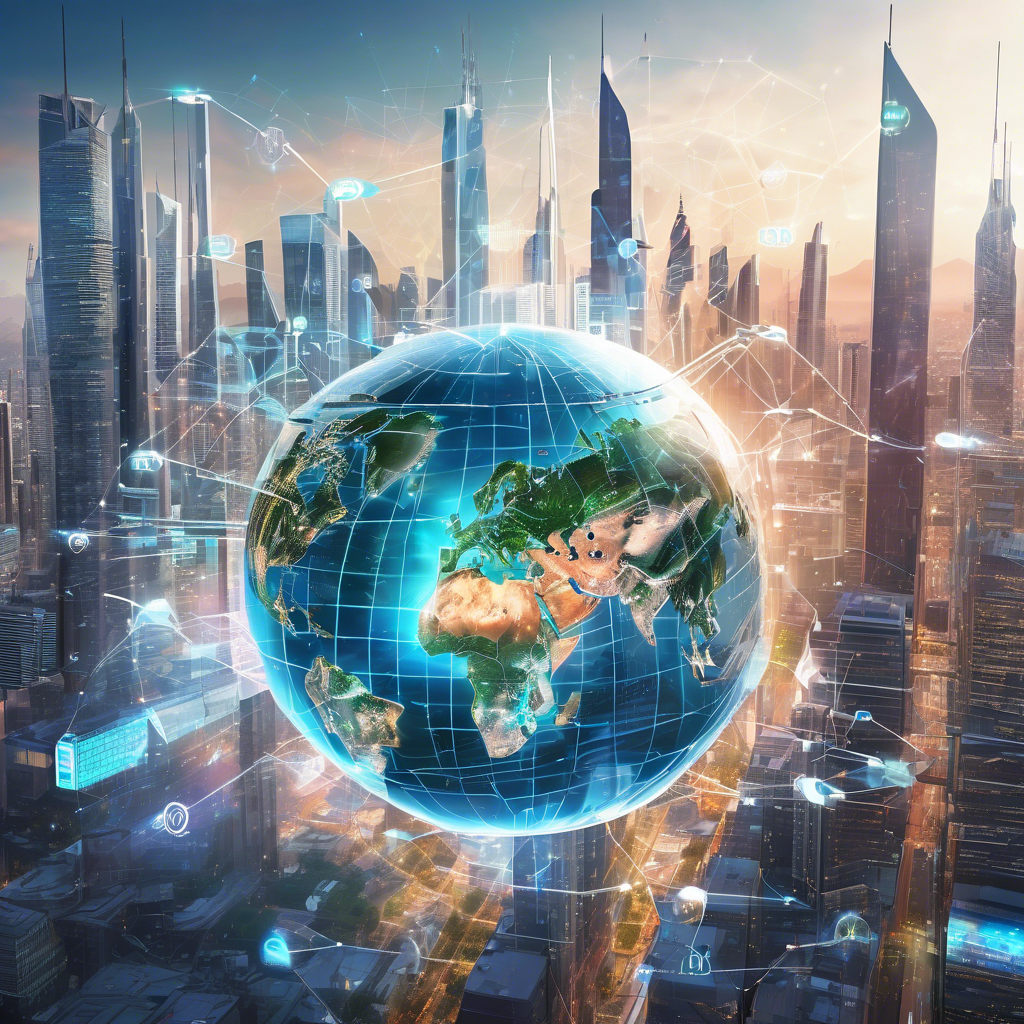PwC Study Forecasts AI to Boost Global GDP by 15% by 2035

Brief news summary
A PwC study forecasts that widespread AI adoption could increase global GDP by up to 15% by 2035. AI technologies like machine learning, natural language processing, and robotics are set to revolutionize sectors such as manufacturing, healthcare, finance, and retail by automating routine tasks, enhancing decision-making, and enabling innovative products and services. By augmenting human labor, AI helps workers focus on higher-value activities, fostering innovation and personalized solutions that create new markets and revenue streams. However, challenges like workforce reskilling, ethical concerns, and equitable access must be addressed to fully realize these benefits. Advanced economies are expected to benefit earlier due to better infrastructure, while emerging markets may experience more gradual growth. PwC emphasizes collaboration among businesses, governments, and educational institutions to responsibly leverage AI for sustainable economic growth, improved living standards, and addressing societal challenges. Continuous research is essential to manage AI’s evolving impact and ensure inclusive global advantages.A recent study by the global professional services network PricewaterhouseCoopers (PwC) has revealed that the adoption of artificial intelligence (AI) technologies could have a profound economic impact. PwC’s detailed research indicates that the broad integration of AI across various industries might increase global Gross Domestic Product (GDP) by up to 15 percent by 2035. This forecast underscores AI’s transformative potential and its ability to drive unprecedented economic growth worldwide. The study considers several factors contributing to this significant rise, including productivity improvements, cost reductions, and innovations that could reshape traditional business models and consumer experiences. PwC’s analysis explores how AI technologies—such as machine learning, natural language processing, and robotics—can be utilized across sectors like manufacturing, healthcare, finance, and retail. By automating routine tasks, enhancing decision-making, improving customer service, and fostering the creation of new products and services, AI can greatly accelerate economic activity. A key factor highlighted in the report is the increase in labor productivity achieved through AI tools that complement human skills rather than merely replacing jobs. By allowing workers to concentrate on higher-value activities, AI promotes more efficient production processes and stimulates innovation. Additionally, AI’s capacity to enable personalized and customized services is expected to open new markets and revenue opportunities, further contributing to GDP growth. Its ability to rapidly analyze large datasets and extract valuable insights supports more informed strategic planning and operational efficiency at every organizational level.
The study also acknowledges challenges associated with AI adoption, including the necessity for workforce reskilling, ethical concerns, and ensuring fair access to technological benefits. It emphasizes that strategic planning and policy frameworks will be vital for maximizing AI’s positive economic impact while minimizing risks. Regional and sector-specific analyses suggest that AI’s effects will vary, with advanced economies likely to realize benefits sooner due to existing technological infrastructure, while emerging markets may experience gains over a longer term as they incorporate AI into their developing economies. The anticipated 15 percent rise in global GDP by 2035 highlights AI’s role as a key driver of economic transformation in the coming decades. Businesses, government bodies, and educational institutions are encouraged to work together to develop strategies that fully leverage AI’s capabilities to promote sustainable growth, enhance quality of life, and address societal challenges. As AI technologies advance, ongoing research and monitoring will be crucial to grasp their broader economic effects. PwC’s findings offer valuable guidance to policymakers, industry leaders, and investors navigating the evolving landscape shaped by AI developments. In summary, the PwC study positions AI as a vital element of future economic prosperity, with the potential to contribute trillions of dollars to the global economy by 2035. Responsible and inclusive adoption of AI can act as a catalyst for a more productive, innovative, and resilient global economic system.
Watch video about
PwC Study Forecasts AI to Boost Global GDP by 15% by 2035
Try our premium solution and start getting clients — at no cost to you

I'm your Content Creator.
Let’s make a post or video and publish it on any social media — ready?
Hot news

AI Video Content Moderation Tools Combat Online H…
Social media platforms are increasingly employing artificial intelligence (AI) to improve their moderation of video content, addressing the surge of videos as a dominant form of online communication.

US revisits its export curbs on AI chips
POLICY REVERSAL: After years of tightening restrictions, the decision to permit sales of Nvidia’s H200 chips to China has sparked objections from some Republicans.

AI was behind over 50,000 layoffs in 2025 — here …
Layoffs driven by artificial intelligence have marked the 2025 job market, with major companies announcing thousands of job cuts attributed to AI advancements.

Perplexity SEO Services Launched – NEWMEDIA.COM L…
RankOS™ Enhances Brand Visibility and Citation on Perplexity AI and Other Answer-Engine Search Platforms Perplexity SEO Agency Services New York, NY, Dec

Eric Schmidt's family office invests in 22 AI sta…
An original version of this article appeared in CNBC's Inside Wealth newsletter, written by Robert Frank, which serves as a weekly resource for high-net-worth investors and consumers.

Future of Marketing Briefing: Why 'just good enou…
Headlines have focused on Disney’s billion-dollar investment in OpenAI and speculated why Disney chose OpenAI over Google, which it is suing over alleged copyright infringement.

Salesforce Data Reveals AI and Agents Drive Recor…
Salesforce has released a detailed report on the 2025 Cyber Week shopping event, analyzing data from over 1.5 billion global shoppers.
AI Company
Launch your AI-powered team to automate Marketing, Sales & Growth

and get clients on autopilot — from social media and search engines. No ads needed
Begin getting your first leads today








